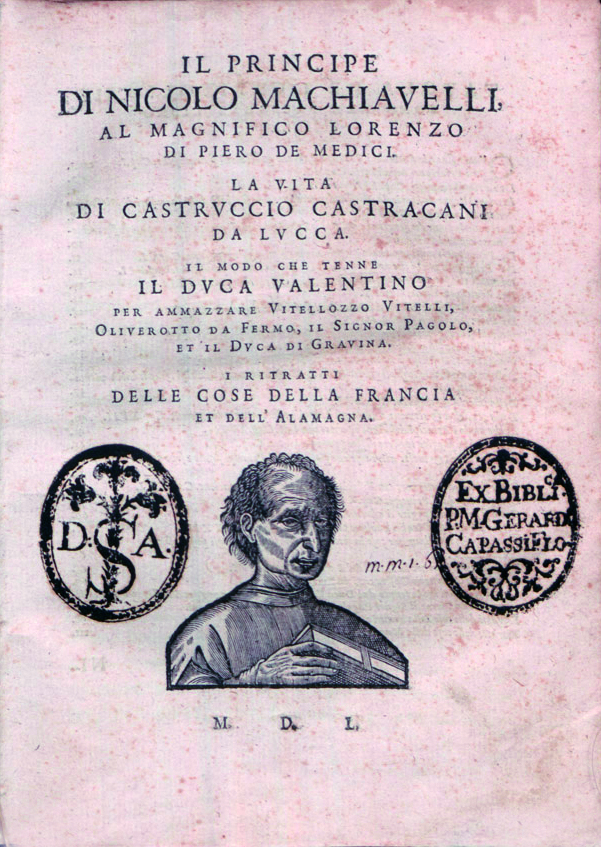Demeter
Demeter's JournalThe Best and Simplest Way to Fight Global Poverty By Matthew Yglesias
http://www.slate.com/articles/business/moneybox/2013/05/unconditional_cash_transfers_giving_money_to_the_poor_may_be_the_best_tool.htmlProof that giving cash to poor people, no strings attached, is an amazingly powerful tool for boosting incomes and promoting development.
Poverty is, fundamentally, a lack of money. So doesn’t it make sense that simply delivering cash to poor people can be an effective strategy for alleviating it?
Transferring money to poor Americans has been a much bigger success than most of us realize. When it comes to the global poor—the hundreds of millions of slum-dwellers and subsistence farmers who still populate the world—one might be more skeptical. Perhaps the problems facing these unfortunates are simply too profound and too complex to be addressed by anything other than complicated development schemes. Well, perhaps.
But there’s striking new evidence that helping the truly poor really is as simple as handing them money. Money with no strings attached not only directly raises the living standards of those who receive it, but it also increases hours worked and labor productivity, seemingly laying the groundwork for growth to come...
A SEMINAL PIECE--MUST READ!
Weekend Economists Dab on some Prince Machiavelli May 31-June 2, 2013

No, not that one!

This one!
Although, I wouldn't mind conflating the two. For women of a certain age, Prince Matchabelli was the sine qua non of parfumiers...my grandmother was especially fond of it. I was more interested in the intriguingly shaped bottle. (Most perfumes, unless they are straight essences of fruit and flowers, smell like soap on me. Bad, chemically harsh soap.) But then, I grew up, and got attracted to another Italian "prince", in a horrible-repulsion kind of way.
Let's see where this unlikely combination takes us, shall we? After all, both are products for the 1%, marketed to the 99% as unattainable but desirable. Both are supposed to sway men to one's power....
For those not interested in either theme, how about that DOW? Down 209 POINTS at the close...we can talk about that, too.
The 13 people who made torture possible
http://www.salon.com/2009/05/18/torture_25/READ IT AND WEEP
Come the Revolution
we will have to redesign Justice from top to bottom in this country. Because there is no universal justice anymore...not that there ever was, but the thumb on the scales has become a blatant joke.
Terracide and the Terrarists By Tom Engelhardt
http://www.nationofchange.org/terracide-and-terrarists-1369404366We have a word for the conscious slaughter of a racial or ethnic group: genocide. And one for the conscious destruction of aspects of the environment: ecocide. But we don’t have a word for the conscious act of destroying the planet we live on, the world as humanity had known it until, historically speaking, late last night. A possibility might be “terracide” from the Latin word for earth. It has the right ring, given its similarity to the commonplace danger word of our era: terrorist.
The truth is, whatever we call them, it’s time to talk bluntly about the terrarists of our world. Yes, I know, 9/11 was horrific. Almost 3,000 dead, massive towers down, apocalyptic scenes. And yes, when it comes to terror attacks, the Boston Marathon bombings weren’t pretty either. But in both cases, those who committed the acts paid for or will pay for their crimes.
In the case of the terrarists -- and here I’m referring in particular to the men who run what may be the most profitable corporations on the planet, giant energy companies like ExxonMobil, Chevron, ConocoPhillips, BP, and Shell -- you’re the one who’s going to pay, especially your children and grandchildren. You can take one thing for granted: not a single terrarist will ever go to jail, and yet they certainly knew what they were doing...
How to Make Staggering Amounts of Money and Do In the Planet
...Call it irony, if you will, or call it a nightmare, but Big Oil evidently has no qualms about making its next set of profits directly off melting the planet. Its top executives continue to plan their futures (and so ours), knowing that their extremely profitable acts are destroying the very habitat, the very temperature range that for so long made life comfortable for humanity. Their prior knowledge of the damage they are doing is what should make this a criminal activity. And there are corporate precedents for this, even if on a smaller scale. The lead industry, the asbestos industry, and the tobacco companies all knew the dangers of their products, made efforts to suppress the information or instill doubt about it even as they promoted the glories of what they made, and went right on producing and selling while others suffered and died...
GREAT SOURCE ARTICLE! MUST READ
I agree. It is those "other ingredients" that I find lacking in ALL Modern-day Politicians
"A man who has in mind an apparent advantage, and promptly proceeds to dissociate
this from the question of what is right, shows himself to be mistaken and immoral.
Such a standpoint is the parent of assassinations, poisonings, forged wills, thefts,
malversations of public money, and the ruinous exploitation of provincials and
Roman citizens alike.
Another result is passionate desire - desire for excessive wealth, for unendurable tyranny, and ultimately for the despotic seizure of free states. These desires are the most horrible and repulsive things imaginable.
The perverted intelligences of men, who are animated by such feelings, are competent to understand the material rewards, but not the penalties. I do not mean penalties established by law, for these they often escape. I mean the most terrible of all punishments: their own degradation."
Marcus Tullius Cicero (106-43 B.C.)
Weekend Economists: See the Kittehs! May24-27, 2013


Yes, it's so bad, we are reduced to photos and clips of our furry friends (or fiends, depending).
I don't know why, or how, it got so bad so fast. I was listening to the Diane Rehm show (Diane was off, so it was much more bearable. Her voice is really not up to the job, and hasn't been for years), and the pinch-hitter from the BBC mentioned that she had 15 topics to cover in an hour.
Well, we have 3 days, if you count Monday, and at least that many aspects of the global political economy to track. So let's get going.



Austerity and Debt Conspire to Wreck the Lives of Working American Families
http://www.alternet.org/books/austerity-and-debt-conspire-wreck-lives-working-american-families?akid=10427.227380.9pUxQF&rd=1&src=newsletter839254&t=17&paging=offThe following is an excerpt from from Debtors' Prison by Robert Kuttner (Knopf 2013):
In this, the fifth year of a prolonged downturn triggered by a financial crash, the prevailing view is that we all must pay for yesterday’s excess. This case is made in both economic and moral terms. Nations and households ran up unsustainable debts; these obligations must be honored—to satisfy creditors, restore market confidence, deter future recklessness, and compel people and nations to live within their means.
A phrase often heard is “moral hazard,” a concept borrowed by economists from the insurance industry. In its original usage, the term referred to the risk that insuring against an adverse event would invite the event. For example, someone who insured a house for more than its worth would have an incentive to burn it down. Nowadays, economists use the term to mean any unintended reward for bad behavior. Presumably, if we give debt relief to struggling homeowners or beleaguered nations, we invite more profligacy in the future. Hence, belts need to be tightened not just to improve fiscal balance but as punishment for past misdeeds and inducement for better self-discipline in the future.
There are several problems with the application of the moral hazard doctrine to the present crisis. It’s certainly true that under normal circumstances debts need to be honored, with bankruptcy reserved for special cases. Public policy should neither encourage governments, households, enterprises, or banks to borrow beyond prudent limits nor make it too easy for them to walk away from debts. But after a collapse, a debt overhang becomes a macroeconomic problem, not a personal or moral one. In a deflated economy, debt burdens undermine both debtors’ capacity to pay and their ability to pursue productive economic activity. Intensified belt-tightening deepens depression by further undercutting purchasing power generally. Despite facile analogies between governments and households, government is different from other actors. In a depression, even with high levels of public debt, additional government borrowing and spending may be the only way to jump-start the economy’s productive capacity at a time when the private sector is too traumatized to invest and spend.
The idea that anxiety about future deficits harms investor or consumer confidence is contradicted by both economic theory and evidence. At this writing, the U.S. government is able to borrow from private money markets for ten years at interest rates well under 2 percent and for thirty years at less than 3 percent. If markets were concerned that higher deficits five or even twenty-five years from now would cause rising inflation or a weaker dollar, they would not dream of lending the government money for thirty years at 3 percent interest. Consumers are reluctant to spend and businesses hesitant to invest because of reduced purchasing power in a weak economy. Abstract worries about the federal deficit are simply not part of this calculus...
MORE AT LINK--SEE ESPECIALLY THE DISCUSSION OF FDR AND THE GREAT DEPRESSION
Military Quietly Grants Itself the Power to Police the Streets Without Local or State Consent
http://www.alternet.org/civil-liberties/military-quietly-grants-itself-power-police-streets-without-local-or-state-consent?akid=10448.227380.Zz6ycd&rd=1&src=newsletter841592&t=15&paging=off...By making a few subtle changes to a regulation in the U.S. Code titled “Defense Support of Civilian Law Enforcement Agencies” the military has quietly granted itself the ability to police the streets without obtaining prior local or state consent, upending a precedent that has been in place for more than two centuries.
The most objectionable aspect of the regulatory change is the inclusion of vague language that permits military intervention in the event of “civil disturbances.” According to the rule: “Federal military commanders have the authority, in extraordinary emergency circumstances where prior authorization by the President is impossible and duly constituted local authorities are unable to control the situation, to engage temporarily in activities that are necessary to quell large-scale, unexpected civil disturbances.”
Bruce Afran, a civil liberties attorney and constitutional law professor at Rutgers University, calls the rule, “a wanton power grab by the military.” He says, “It’s quite shocking actually because it violates the long-standing presumption that the military is under civilian control.” A defense official who declined to be named takes a different view of the rule, claiming, “The authorization has been around over 100 years; it’s not a new authority. It’s been there but it hasn’t been exercised. This is a carryover of domestic policy.” Moreover, he insists the Pentagon doesn’t “want to get involved in civilian law enforcement. It’s one of those red lines that the military hasn’t signed up for.” Nevertheless, he says, “every person in the military swears an oath of allegiance to the Constitution of the United States to defend that Constitution against all enemies foreign and domestic.”
One of the more disturbing aspects of the new procedures that govern military command on the ground in the event of a civil disturbance relates to authority. Not only does it fail to define what circumstances would be so severe that the president’s authorization is “impossible,” it grants full presidential authority to “Federal military commanders.” According to the defense official, a commander is defined as follows: “Somebody who’s in the position of command, has the title commander. And most of the time they are centrally selected by a board, they’ve gone through additional schooling to exercise command authority.” As it is written, this “commander” has the same power to authorize military force as the president in the event the president is somehow unable to access a telephone. (The rule doesn’t address the statutory chain of authority that already exists in the event a sitting president is unavailable.) In doing so, this commander must exercise judgment in determining what constitutes, “wanton destruction of property,” “adequate protection for Federal property,” “domestic violence,” or “conspiracy that hinders the execution of State or Federal law,” as these are the circumstances that might be considered an “emergency.”
“These phrases don’t have any legal meaning,” says Afran. “It’s no different than the emergency powers clause in the Weimar constitution (of the German Reich). It’s a grant of emergency power to the military to rule over parts of the country at their own discretion.”...
AND WE ALL KNOW HOW THAT TURNED OUT
New App Helps Avoid Koch Industries & Monsanto, Trace Corporate Ownership of Everything in Shopping
http://www.alternet.org/new-app-helps-consumers-avoid-koch-industries-and-monsanto-products-and-trace-corporate-ownership?akid=10442.227380.PogIyl&rd=1&src=newsletter840820&t=21&paging=offGiving consumers the info that they need to make conscious buying decisions...
Given the byzantine corporate ownership structures of practically every item Americans purchase, it takes near encyclopedic knowledge to know which companies you are supporting when you buy, say, toilet paper. A new free app will help conscious consumers know whose pockets they are lining, and help them avoid supporting right-wing causes and truth-obscuring corporate conglomerates like Koch Industries and Monsanto. The free downloadable app scans everything in your shopping cart and traces the ownership all the way up to the parent company. Sometimes that trail will resemble a complicated family tree, since parent companies don't always want you to know who their offspring is. Just by way of example, Brawny paper towels, Angel Soft toilet paper and Dixie Cups are all products of Georgia-Pacific, a subsidiary of Koch Industries. The Brothers Koch also have gotten their corporate hands into the seemingly progressive yoga pants industry. But when you buy stretchy Lycra-containing pants for your downward dog, they are made by Invista, a textile company Koch bought.
The idea for an app for more consicous-shopping first germinated at a Netroots Nation gathering, when Darcy Burner, the former Microsoft programmer, suggested some app developer work on it. A group calling itself Buycott was already at work on the challenge, ultimately making the app even more spophisticated than Burner envisioned. It took 16 months for freelance programmer Ivan Pardo, 26, of Los Angeles to develop the app that allows you to scan the barcode of any item in your shopping cart and find out who your purchase is enriching. But it goes beyond that, as Forbes.com's Clare O'Connor reports. Users of the app can "can join user-created campaigns to boycott business practices that violate your principles rather than single companies. One of these campaigns, Demand GMO Labeling, will scan your box of cereal and tell you if it was made by one of the 36 corporations that donated more than $150,000 to oppose the mandatory labeling of genetically modified food." Monsanto, of course, comes to mind, but it has plenty of company including: Coca-Cola, Nestle, Kraft and Unilever.
On a more positive note, Buycott has campaigns to support companies that support progressive causes, like Absolut and Starbucks, both of which have supported marriage equality.
The app is free and downloadable to the Android or iPhone.
......................................................................................................
Buycott campaigns encouraging shoppers to support brands that have, say, openly backed LGBT rights. You can scan a bottle of Absolut vodka or a bag of Starbucks coffee beans and learn that both companies have come out for equal marriage.
“I don’t want to push any single point of view with the app,” said Pardo. “For me, it was critical to allow users to create campaigns because I don’t think its Buycott’s role to tell people what to buy. We simply want to provide a platform that empowers consumers to make well-informed purchasing decisions.”
Forbes reached out to Koch Industries and Monsanto for comment and will update this story with any responses.
.......................................................................................................................
Update: Tuesday’s traffic surge is causing some problems for Buycott. Pardo says he’s working to fix issues with the Android app in particular. “The workload is a bit overwhelming now,” he said. “For example, our Android app was just recently released and the surge of new users today has highlighted a serious bug on certain devices that needs to be fixed immediately. So all other development tasks I was working on get put on hold until I can get this bug fixed.”
Profile Information
Gender: FemaleHometown: Ann Arbor, Michigan
Home country: USA
Member since: Thu Sep 25, 2003, 02:04 PM
Number of posts: 85,373